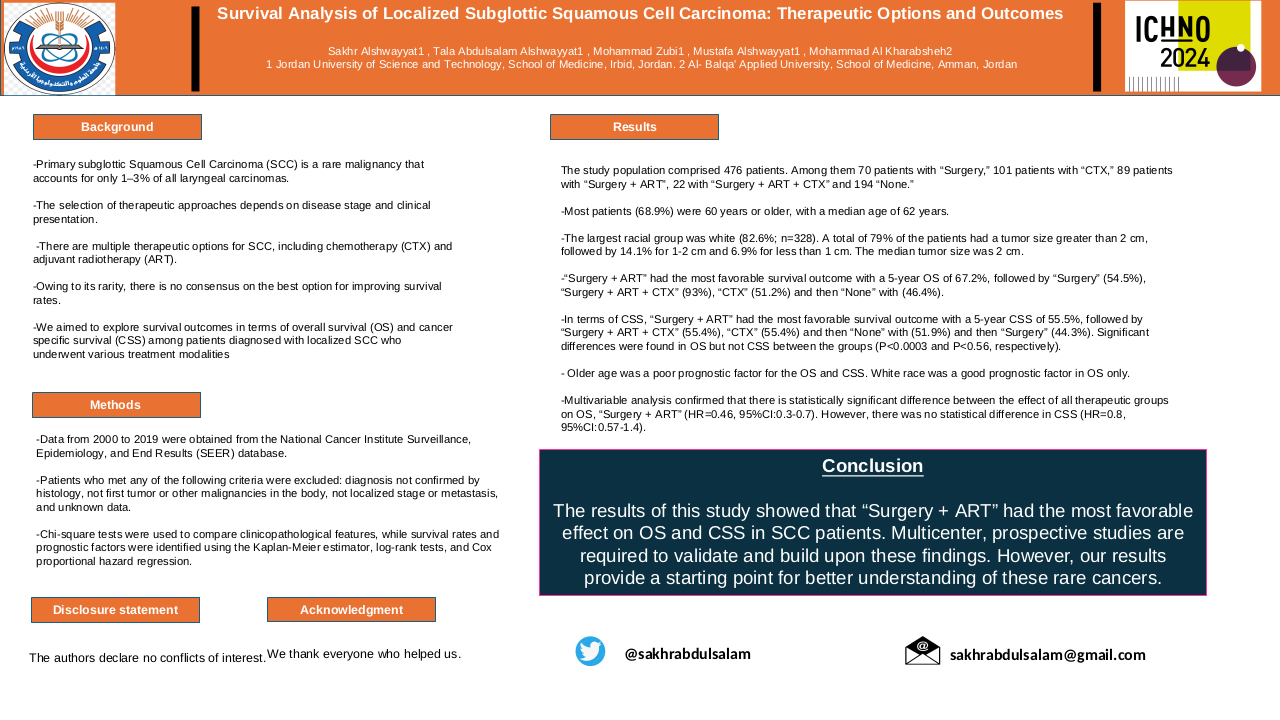Assessment of patient's quality of life after total laryngectomy vs. concomitant chemoradiotherapy for laryngeal preservation
Purpose/Objective
The treatment of head and neck cancers, especially that of the larynx, causes late effects and can affect negatively the patient's quality of life.
For locally advanced laryngeal cancer, clinical response outcomes such as locoregional control and survival were similar in patients treated with concomittent chemoradiotherapy and those treated with total laryngectomy (TL).
The aim of this work was to compare the quality of life of patients treated by concomitant radio-chemotherapy with those treated by total laryngectomy (TL) followed by adjuvant radiotherapy.
Material/Methods
Thirty-six patients treated for locally advanced laryngeal cancer (stage III or IV) were included in this study. These patients were treated with concomitant chemoradiotherapy or TL with adjuvant radiotherapy. Patients had to be without evidence of recurrence and have completed treatment at least 3 months before study inclusion.
The European Organization for Research and Treatment of Cancer (EORTC) Quality of Life Core Questionnaire (QLQ-C30) and Head and Neck (H&N35) questionnaires were used for the assessment of quality of life.
An interrogation took place during the post-therapeutic monitoring consultation during the period from January 1, 2023 to August 1, 2023.
Results
On the baseline questionnaire (QLQ-C30), there was a difference in the overall quality of life score between the 2 groups, with a higher score in the group treated with concomittant chemoradiotherapy meaning a better quality of life in this group.
Analysis of functional subscales revealed a tendency for patients in the surgery followed by radiotherapy group to experience greater difficulty in social functioning compared to the chemoradiotherapy group.
On the QLQ-H&N35, surgical patients reported significantly greater difficulties with sensory disturbances (smell and taste), analgesic use, and cough. On the other hand, patients treated with chemoradiotherapy reported significantly more problems with dry mouth and ageusia.
Conclusion
We found better overall quality of life scores in patients undergoing concomitant chemoradiotherapy for laryngeal preservation compared to patients treated with LT and postoperative radiotherapy for advanced laryngeal cancer. This appears to be primarily caused by better physical health, functioning, and social contact scores and fewer problems with pain, speech, senses, and sleep disturbances in this group.






